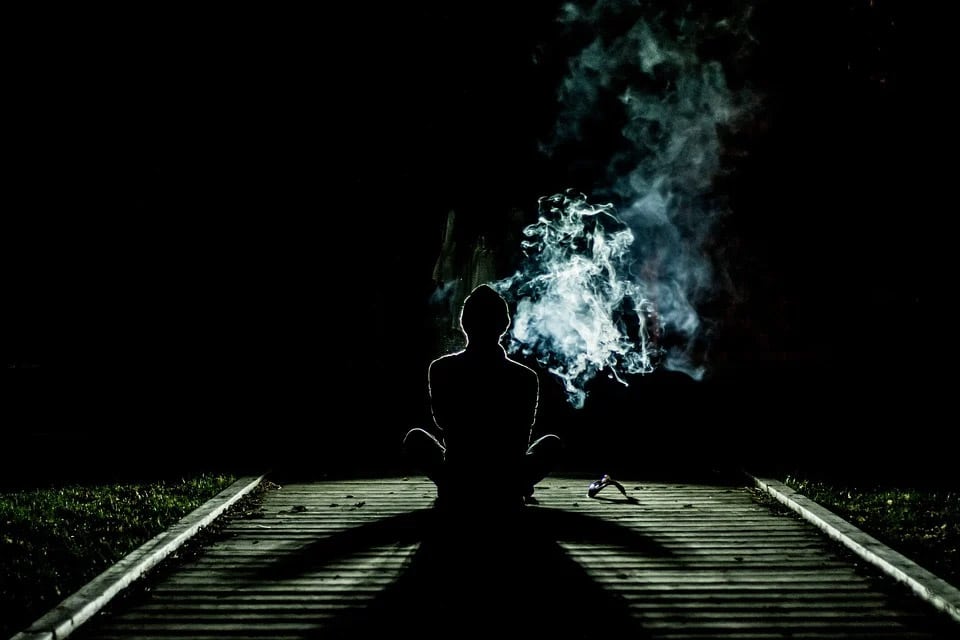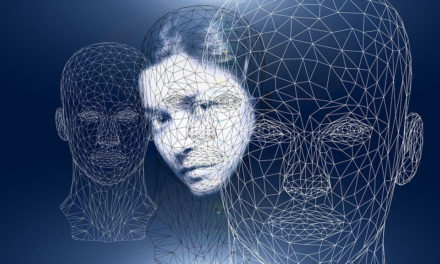Dr. Carl Hart’s argument that we should destigmatize, legalize, and regulate all drugs is revolutionary for two main reasons. For one, he is an internationally lauded neuroscientist and neuropsychopharmacologist, and one of the world’s leading experts on drug use, drug effects, and addiction. And secondly, he has “come out of the closet” as a drug user himself, who responsibly partakes of heroin, cocaine, and other illegal drugs on occasion. Important to note is that he started his scientific career convinced that drugs were an enemy to society, and only experimented with harder drugs in his later adulthood after his research showed that the majority of all drug use was non problematic. The fact that he speaks as a fully bonafide scientific expert, as well as from personal experience, lends his argument all the more credence.
This perspective on drug policy and how our culture treats drug users is not new. Countries like Portugal, Switzerland and the Netherlands have decriminalized drug possession for personal use, and focused on rehabilitation rather than punishment for people who are addicted. Yet drug policy is just part of the equation. If we really want to reimagine our cultural relationship with drugs, the same de-stigmatization process that we are seeing with cannabis- and on its heels, psychedelics- needs to happen for the “harder” drugs as well. Essential in this process is for millions of responsible drug users to follow in Dr. Hart’s footsteps, and speak openly and candidly about their experiences- both positive and negative- with their drug use. Additionally, non-drug users need to allow science to change their perspective and remove their conditioned stigmas, so that they too can be a voice to end the existing deeply unjust system.
Of course, this is easier said than done, and many people will worry about judgement from their family and peers, or consequences from their employers or the judicial system. In this continuing conversation with Dr. Carl Hart, we speak about the backlash that he has received in coming out with this message, and the unlikely place where he has encountered some of the staunchest resistance.
Thank you again for speaking with me Dr. Hart. In the circles that I run in, people are very receptive to your message, but in our last conversation you mentioned getting some hate. What kind of backlash have you gotten, and where is it coming from?
Well I know that some people will never listen to anything I have to say, in part because I have a race analysis. That group of people don’t want to hear that, and I can accept that. So I’ll talk about the people who surprised me. The people who surprised me the most were the middle class, well-educated reporters and writers, who like their drugs by the way. I don’t exactly understand what is happening with them, but I do know that one of the things that I did in the book was to take away the specialness of those people, in their promoting of psychedelics for example. In fact, if you are not showing up on behalf of other people who are not like you, then you are part of the problem.
There’s a group of reporters in the media that were deeply offended, and I didn’t anticipate that. There are people within the black community- and I hate to say it like it’s this monolothing thing, it isn’t, but that’s just shorthand- who I understand, they worry because they think drugs are destroying the community, and so any message that is not unequivocally saying that drugs are bad, then that’s drug promotion in their mind. Of course, I started with that position myself when I was initially working in the field, so I can understand that. I can reach those people, I can reason with that group, not a problem. Also with the people who are uncomfortable with the race analysis, I understand that, and I can also reach them with reason at some level if I really want to put the work in, not a problem, because many of them are certainly open enough to say “Alright, let’s reason.”
But the middle class writers are the worst. They think they know everything, and how dare someone call them to task on what they are doing, in terms of perpetuating inequality and inequity, all these things they have participated in. And they are smart enough to see that what I’m writing is certainly calling them to task. And that’s been the most surprising group.
Speaking as a middle class writer, I can say that it definitely takes some honest self reflection to integrate your message, and a level of humility and willingness to question fundamental assumptions. When I first came across your work, I thought “Wow, that’s fascinating, there’s definitely something there,” but I wasn’t ready to integrate the whole thing. But over time, and especially after your second book, I’ve really taken it to heart. And I’m guilty of it to some degree. I’ve unconsciously relied on the tropes of bad drugs versus medicines, and fed into psychedelic exceptionalism. Psychedelics are unique, wonderful tools, but constantly contrasting them with recreational drug use and “harder” drugs has been a perpetuation of harmful Drug War propaganda. Judgement is so alluring, and shame so potent, it’s no wonder so many people fall into this trap when the zeitgeist demands it. But this shit has got to change. It’s so clear to me now.
The work that we have been doing in the psychedelic space to destigmatize them to the public, and medicalize them and move to mainstream adoption, has been working at the upper layers of social assumptions. What you are asking all of us to do is to go way deeper than that, and look at fundamental assumptions, things we are not even aware of, both within culture and within us.
Yea, again it has a lot to do with what we are incentivized for. It’s kinda hot right now to be talking about psychedelics, you get a lot of love. It’s also hot to be besmirching opioids, you get a lot of love, you get your stuff published, and I get it. You point these things out to people, and despite the incentives, you hope that people can behave like humans. We have this huge prefrontal cortex and you hope we can override some of these things, because as humans, that’s what makes us unique. I recognize it’s difficult. It’s been a fascinating journey watching that group. Because you and I have a relationship previously, and that’s why I’m happy to do this, but these days I’ve been very careful about whom I speak and do interviews with, because I’ve gotten burned so much doing this current book tour.
I think the most egregious example might be the New Yorker piece. He got the interview by saying, “I think there are things that are not being said in the press, and I want to bring out this issue of how we are being infantilized in society, and that’s what your book deals with.” So I said “Great, let’s do it.” Over several days I met with the writer on Zoom, and I’m educating him about brain imaging and these other things, great conversations. He’s a drug user, but he does not disclose that publicly.
And then he wrote a hit piece about my book. I came out with the fact that I used heroin to be in solidarity with opioid users. You read the book and know heroin is a small part of it, but that’s where he focused all his attention on. His distortions were egregious, he wrote stuff that just wasn’t true. I wrote the writer, I wrote the fact checker even, and they brushed me off. So I went to Twitter and point by point showed where he was wrong, where he manipulated information, and people really appreciated it.
A number of writers did some version of this- Vox, same sort of thing, the UK Independent, same thing. One of the main messages of my book is that I want people to come out of the closet with drugs and act like grownups basically. And the New Yorker writer actually wrote that remaining in the closet is a version of being a grownup. And that’s what I don’t understand. How is that more responsible? How did you actually write this dumb shit? They all revealed themselves in this sort of way, and you realize this person is a closeted drug user who is upset about me calling people to task about this.
The crux of it is cowardice, isn’t it. To take this to heart is to do what society deems is a radical act, by being open about your drug use and supporting others who do so and amplifying this message. It takes balls honestly, and there’s so much incentive to play this party line and fall back on tropes. But there is also a deep and dangerous willful ignorance- he is arguing that all the deaths and imprisonments and black markets associated with our current prohibition is less harmful than legalizing, regulating and destigmatizing these drugs, which is morally bankrupt and factually absurd.
That’s it. Noone has ever done something in the press that I’ve seen that is so blatantly dishonest. He didn’t have to write the piece, but I guess he wrote the piece in defense of people like him. And this is despite the fact that so many people are suffering because of this position. They have to hide their activities and they take on the shame of that. If you don’t want to come out of the closet- that’s fine, but shut the fuck up. But not only did he not come out of the closet, he was like a frightened animal swinging. That is, in my view, the most depraved sort of thing, in that you don’t give a fuck about your fellow citizens who are catching hell because of how we have been behaving as a country and been brutalized and ostracized by society’s views and policys on these drugs.
Privilege plays a huge role in this I imagine, because people in positions of privilege feel they have much more to lose if they jeopardize that by breaking the unsaid rules of their social class by being honest. It makes the incentive that much harder to break through. And even for the closeted drug user, there is a strong societal and subconscious pull to consider other users of the same drug as “others” which prevents empathy.
There are people that are suffering because of what we are doing, and they know it, and not only are they silent about it, they are defending it. That’s abhorrent, no matter who you are, whether you do drugs or not, I don’t care, but you have to stand up against unjust systems.
We are very grateful to Dr. Hart for speaking with us on these important subjects. Check out his latest book Drug Use for Grown-Ups, and read our first interview with him here.










